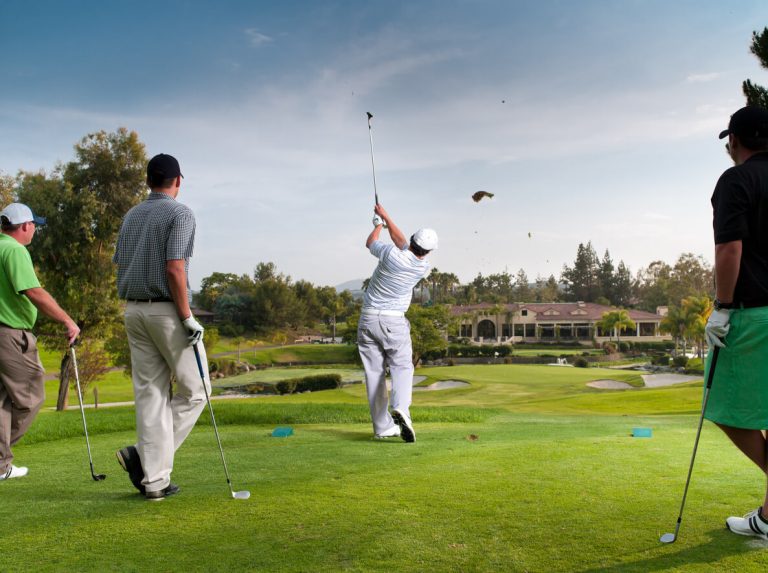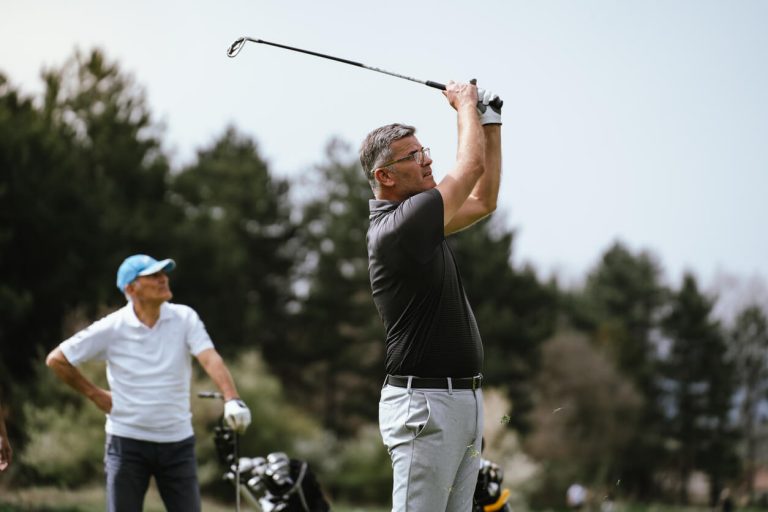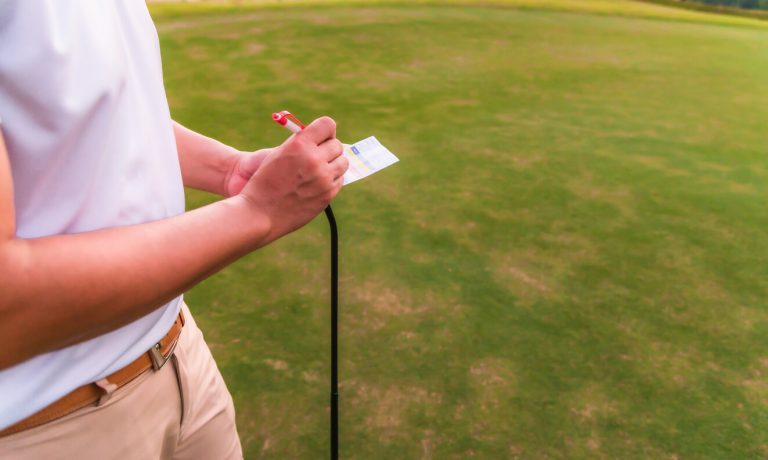
Ask any group of golfers to list their biggest pet peeves, and you’re likely to hear ‘slow play’ mentioned a handful of times at least.
There’s no doubt that knowing how to avoid slow play in golf will likely win you more friends out on the course. In fact, the R&A actually has a Pace of Play Manual, which cites results from a 2015 survey showing that 60% of golfers would enjoy the sport more if it took less time.
The 56,000 survey respondents played golf on average twice a week, demonstrating that even those who play fairly regularly have a desire to play in less time—and it would be fair to assume that golfers who play less than this face even longer rounds.
We’ve been hearing about slow play in golf for decades and, were it not for what is happening in the professional game these days, we’d be hearing a lot more. Headlines back in 2020 suggested the Tours were clamping down on golfers guilty of slow play, but since then, we’ve had a pandemic and a huge split in the game thanks to the emergence of LIV.
Although there’s no concrete definition of what constitutes as slow play, we can all do our bit to avoid it at club level. The ‘common-sense’ measures below, again, have been around since the beginning of time, but a large chunk of golfers could do with a timely (pun intended) reminder.
So, what can club golfers and weekend players do to ensure that everyone gets round in a decent time?

1. Play ‘ready golf’
We’ve been familiar with this phrase for a number of years, but many of us could perhaps put it to better use.
This occurs in stroke play to help speed up the game. If it is safe to do so, you can play your shot even if you’re nearer the hole than your playing partners. One player might be waiting for a par-5 green to clear, and this is the perfect opportunity for those who can’t reach to play up the fairway.
You often see players on the tee deliberating who had the lowest score on the previous hole and then playing in order. We all have different routines, but it’s much better for the overall pace of play to have the quickest player teeing off first and setting a good example.
Another good example to set is to hit your shot before looking for another player’s ball, particularly if that player already has some help. Use your common sense—if a playing partner has bladed a shot over the green, they could probably do with a breather.
2. Pay attention
How many fourballs have you played in where one player in the group is brilliant at spotting balls and another is appalling?
There’s no reason why you shouldn’t be watching your playing partners’ tee shots and, to a lesser extent, their approach shots, too. To help the pace of play, everyone needs to be aware of what is happening in their group.
3. Play the right tees

Obvious it may sound, but this is another familiar point when talking about how to avoid slow play in golf. Playing a longer course will mean a longer round. You’re walking back to tees, hitting longer clubs in, taking more shots and probably not enjoying it as much.
There’s so much to be said for playing a shorter course on occasion and seeing your home club through a different lens.
Don’t let vanity get in the way of enjoying your round. Likewise, playing the right format will also help matters. Most of the time, we get to choose how we play the game, so steer clear of fourballs and stroke play and entertain a format that means you can pick your ball up if you’re not in the hole. Also, where possible, play at a time of day when there might be less traffic.
4. Let players through
Single golfers present an easy way to get people around the course. If you’re a fourball and you have a singleton behind you, let them through immediately.
It’s very easy to see how your group is faring in relation to the rest of the course, so if you’ve lost a hole on the group in front, speed up or let others through.
5. Play a provisional
There’s arguably nothing worse than trudging back to the tee or divot in the fairway having not found your tee or approach shot.
This whole charade can add 10 minutes or so to a round, but a simple provisional will take a fraction of that time. It’s not the most comfortable position to be in, having to hit another, but see it as a chance to play an extra shot and find a more positive feel, and encourage playing partners to do the same.
Amazingly, the better the player, the more often they will hit a provisional.
6. Don’t mark your card on the green

Well, you can—but it’s more about being aware of the group behind. You can expect a few hands on hips from the fourball on the fairway if you finish the hole by noting down your scores.
Do it on the next tee, or you risk being that unpopular group everyone moans about.
7. Pick up
If you have nobody behind you, then feel free to do what you want, within reason, of course. If you have a group behind you and they’re all standing there with their hands on their hips, and there’s no need to putt out, don’t.
We’re all familiar with the golfer who has just made an eight, and they continue to play out the hole. For the sake of any card, marking it doesn’t make any difference, and you’re potentially getting in the way by playing on. One of the biggest crimes here is to ‘hockey’ the ball around the hole once you’re out of it or your putt has been conceded.
8. Walk quicker

This point rarely gets mentioned when looking at how to avoid slow play, but pushing yourself to get to your ball that bit faster can make all the difference.
Get your heart rate and speed up, and if you’re playing in a fourball, walk in twos and mix the chat up. Be ready to leave the tee once the final player has hit and get moving.
Ultimately, eighteen holes will take a relatively long time compared to other sports, but we can all do our bit to improve the pace of play and the enjoyment of our fellow golfers.
Specialist golf insurance with Golf Care
By understanding how to avoid slow play in golf, you can ensure a more enjoyable experience for yourself and your fellow players. However, you may also want to consider protecting yourself and your equipment with specialist golf insurance before your next round.
With Golf Care, policies include Equipment Cover up to £7,500, Public Liability of up to £10m, and Personal Accident Cover up to £50,000. Click on the banner below to learn more and get a quote.
Get a quick quote for Golf Insurance
Get A Quote